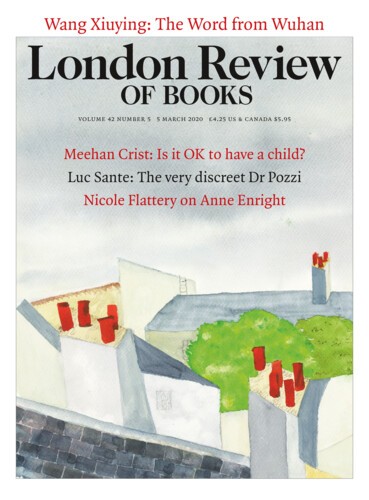The Covid-19 regulations are draconian, inconsistent, obscure and inconvenient, but they are not unconscionable. They do not require me to do things that the state should never make its citizens do. They are proportionate to the threat that the virus poses to health services, and necessary to slow the spread of the disease and protect those services: or at least, they are arguably so. The law and the reasons for it make sense. The regulations are contained within statutory instruments. They alone are the law. They are the ‘rules’. They can be enforced with criminal sanctions. Guidance and advice are not rules and cannot be legally enforced.
Francis FitzGibbon
Francis FitzGibbon is a KC. He was chair of the Criminal Bar Association from 2016 to 2017.
‘A good jury turns into a little community,’ Baroness Hale has said, ‘working together in the interests of justice.’ As a jury advocate for over thirty years, I have always been impressed, and often humbled, by the care and dedication they give to their work. Academic research supports the experience of criminal lawyers that juries are fair, and do their utmost to bring in the right result. In every case, it isn’t just the defendant on trial: the state itself is on trial, too, in public, before its citizens. Can it prove its case to the high standard the law requires? Has it used its coercive powers wisely and lawfully? Have its operatives in the courtroom – the judge and the lawyers – conducted themselves properly?
The criminal courts and the jails that feed and are fed by them are ideal incubators of Covid-19. It comes as no surprise that an elderly prisoner has died today, either from or with the virus, and he won’t be the last. Courts bring people together in small spaces for hours or days at a time, in the courtrooms, the cells, and the jury rooms, not to mention the offices where the staff work. In the basement cell area of a court I attended recently, a single air-conditioning unit blew the same air through all the cells and into the interview and staff rooms. My colleagues have been complaining for years about broken plumbing, absence of soap and towels, and frequently filthy conditions.
The Sovereign Weapon: The Old Bailey
Francis FitzGibbon, 5 March 2020
Thomas Grant’s Court Number One tells the stories of 11 prominent trials heard in Court One of the Old Bailey between 1907, when it opened, and 2003. His aim is to use these stories as illustrations of ‘British sensibilities and preoccupations over the last hundred years … Through the criminal trials … there can be traced at least one version of the history of...
Brenda Hale, the president of the United Kingdom Supreme Court, will retire in January 2020. She took an atypical route to the summit of the judiciary, having been appointed to the High Court from an academic career (she was a professor of law at Manchester University) rather than practice at the Bar. Her speciality was family law, considered by some in the profession as a poor relation, which it may be in terms of earnings, and intellectually soft, which it isn’t. Family cases throw up enormously complex and important legal issues, such as the rights of parents and children as against local authorities, cross-border disputes over children and property, and the ethics of medical treatment against parental wishes. Hale’s academic and judicial work has also focused on social welfare and mental health law, subjects far removed from the bloodless commercial work that fills the CVs of most senior judges.
Read anywhere with the London Review of Books app, available now from the App Store for Apple devices, Google Play for Android devices and Amazon for your Kindle Fire.
Sign up to our newsletter
For highlights from the latest issue, our archive and the blog, as well as news, events and exclusive promotions.


